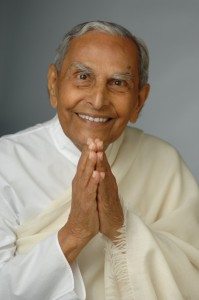6414 people reached on Lassi with Lavina FB page – 178 engagements
Ashoo Prabhakar, Parul Bhatnagar, Meera Agarwal and Sonia Lalwani like it on Lassi with Lavina FB page.
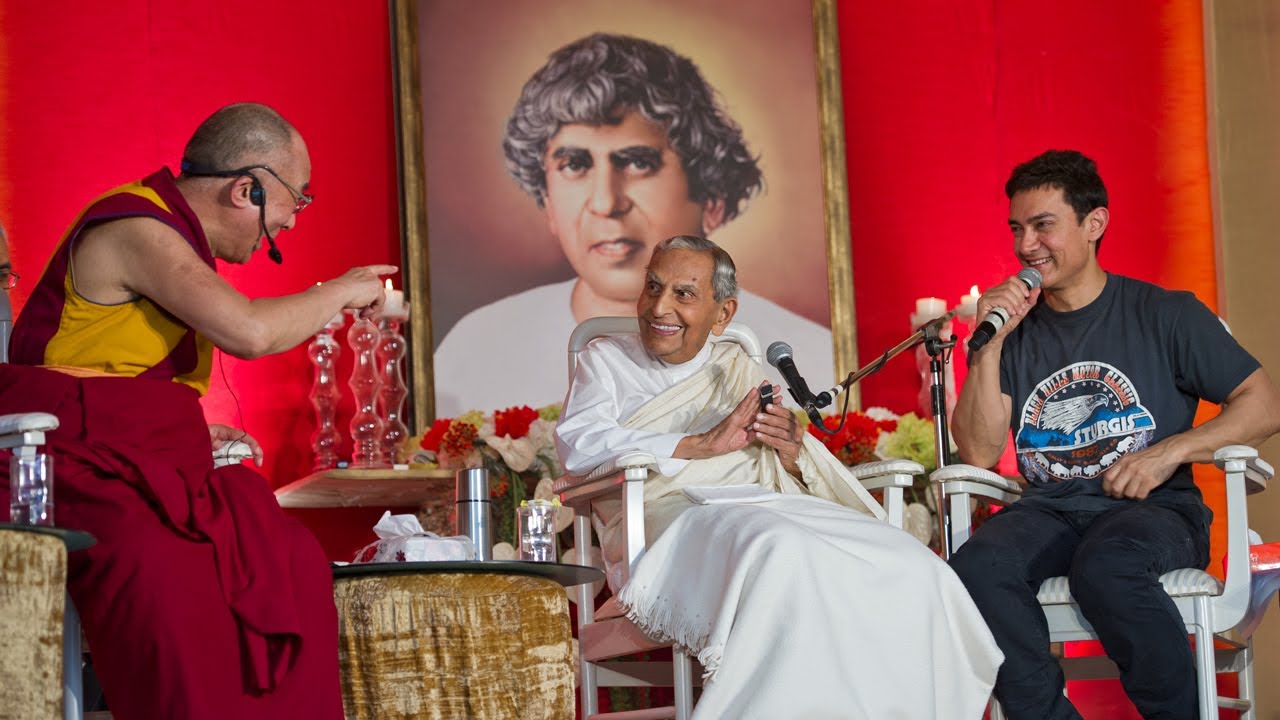
Remembering Dada Vaswani:
Gentle, Humorous with all the answers to life’s complexities
[dropcap]T[/dropcap]he Much Loved Philosopher-Saint who passed away last year just before his 100th birthday would have been 101 this August, which is being observed as Forgiveness Day. He was gentle, humorous and had all the answers to life’s complexities.
Indeed, if anyone had a failproof blueprint for a better world, it was Dada J.P. Vaswani, the wise and unassuming spiritual head of the Pune-based Sadhu Vaswani Mission. His life was a synonym for peace, grace and compassion, and it is these qualities that he passed through word and action to thousands of people in countries as far apart as India, the U.S., England, Hong Kong and Australia.
Dada’s is the life well lived, proof that even one person can make a difference in changing mindsets and changing the world. Born in 1918 in Hyderabad, he was drawn to the teachings of his uncle and mentor, the great spiritual leader Sadhu Vaswani.
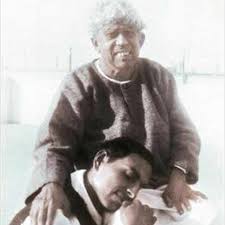
[dropcap]A[/dropcap]s a child, he remembers his uncle allowing him to win in a game of Scrabble, a game that in those days was called Word Making and Word Taking. When he asked him why he did that, the great spiritual master replied, “I always give – I never take.” Recalled Dada, “And that I remembered all my life. I thought I would be joining a great giver and to do that I had to give up everything and I was ready to do so.”
A brilliant student, Dada received three double promotions in school and matriculated at the age of 13. In college he excelled in English and Science and his family hoped he would sit for the ICS exam. In spite of having got his Bsc and Msc degrees and having passed the LLB examination, he decided instead to follow in the spiritual footsteps of Sadhu Vaswani.
As a child, he saw that Sadhu Vaswani not only gave his shirt to a beggar but even his cap when the man pointed to it. Says Dada, “His words are engraved on the tablet of my heart. He said ‘This cap and this shirt and everything that I have is a loan given to me to be passed on to those whose need is greater than mine.’
That was his teaching. Everything we have is a trust, a loan to be passed on to others: our time, our talent, our experience, our knowledge, our wisdom, our position and prestige in society, our bank accounts, our properties, our possessions, our life itself is a loan given to us to be passed on to those whose need is greater than ours. And that left such a stamp on me.”
Dada has entwined this philosophy of his guru into every hour and every activity of the day, with the result that thousands of people, by following the same creed, are not only enhancing their own spiritual growth but also helping the less fortunate in the countries where they live.
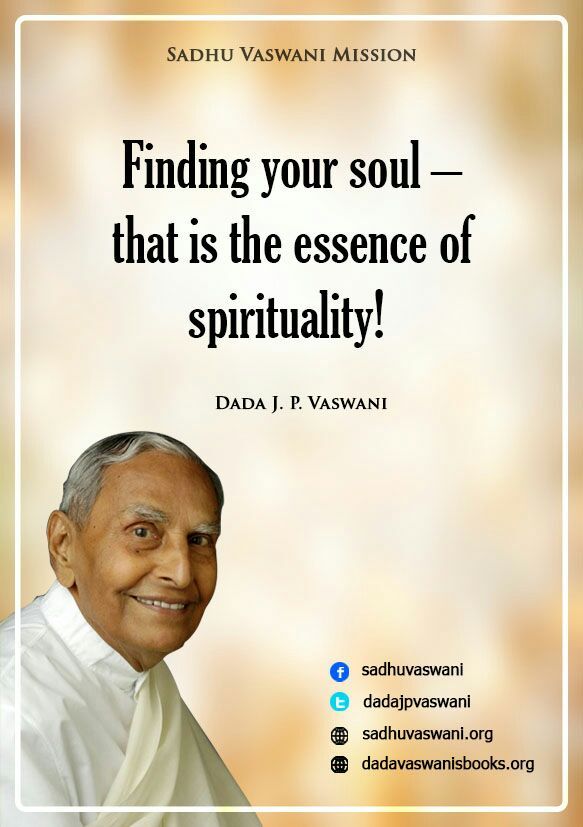
[dropcap]S[/dropcap]adhu Vaswani’s ideals have been translated into reality by Dada through the many humanitarian activities of the Sadhu Vaswani Mission. The St. Mira educational institutions, which include excellent schools and a college in Pune, are character building institutions which give children a first rate education and also Indian ideals and a strong value system.
The many institutions of the Sadhu Vaswani Medical Complex include state of the art hospitals, dispensaries and clinics providing services to the needy as Dada believed that ‘Service of the poor is the worship of God.’ The Mission is vital to the life of Pune, and its wonderful effects have spread into many cities and states in India, as well as into the wider world outside. Keeping alive the tenets of the spiritual guru, Sadhu Vaswani, the Mission teaches love and compassion to all, irrespective of caste or creed.
Dada’s 101 Birthday Celebrations
[dropcap]D[/dropcap]ada had also been a tireless traveler, reaching out to people across the world and Sadhu Vaswani centers have sprung up in many countries with a devoted following. His visits encompassed talks, satsangs and sadhana camps, which are an exercise in spiritual fitness.
An internationally acclaimed thinker and philosopher, Dada spoke at major venues, including the House of Commons in London, the Global Form of Spiritual Leaders in Oxford, the World Parliament of Religions in Chicago, the Conference on World Religions, New York and the Millennium World Peace Summit in Bangkok.
Dada was the recipient of many awards, including the U Thant Peace Award and has written over 75 books that have been translated into several languages – for in any language, his is an exemplary life, a path that celebrates union with God. His many parables, his wisdom, his humor and his approachability made his talks accessible to both the scholar and the man on the street.
The publication Hinduism Today had selected him as Hindu of the Year and I was given the opportunity to interview Dada about many subjects at the home of one of his devotees in New Jersey. At that time he was 86, but he maintained the optimism and joy of a child and took each day as a gift from God, which is not to be squandered but used for the welfare of all God’s children.
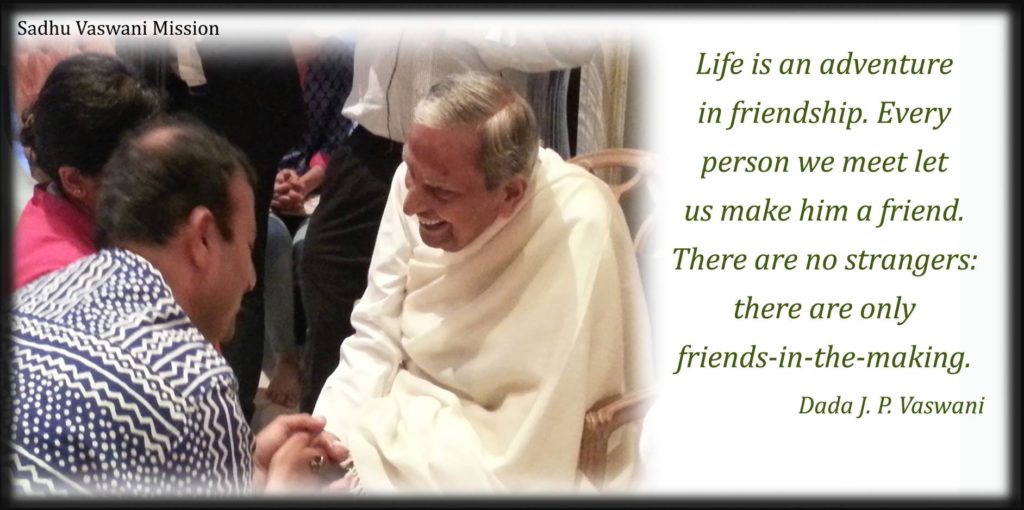
Face to Face with Dada Vaswani
An Interview with Dada when he was 86, in New Jersey
Q: Could you tell us about the origins of the Sadhu Vaswani Mission?
A: It came to be known by that name only after Sadhu Vaswani dropped his physical body – before that it was known as the Brotherhood Association and before that, while we were in Sind, it was known as the Sakhi Satsang Association. It started as a women’s organization. Sadhu Vaswani believed it was the woman’s soul that would lead us on. He used to say man has had his chance – man has bungled, man has blundered, man has built up a civilization of violence and war, of hatred and strife – the new civilization will be built by women. He told women, “The shaktis that are hidden within you – you must unfold them and spend them in the service of suffering humanity.” He started women’s stores, a school and college but gradually the men folk joined in too.
Q: What are the activities of the Mission?
A: They are based on the teachings of Sadhu Vaswani – service of the poor is the richest service that you can offer to God so the aim of the many of the institutions we have in Pune is to serve the people.
We must take care of the children. The children of today are the builders of tomorrow. So we must give them the right training – we must have mothers of the true type and schools and colleges of the true type. So a humble attempt has been made in that direction. The emphasis continues to be on girls’ education.
Sadhu Vaswani also believed that the noblest work is to cultivate the soul. Therefore the basis of all our work is the satsang – three satsangs a day, including one in the evening where hundreds attend. The last half an hour is a meditation at the sacred samadhi.
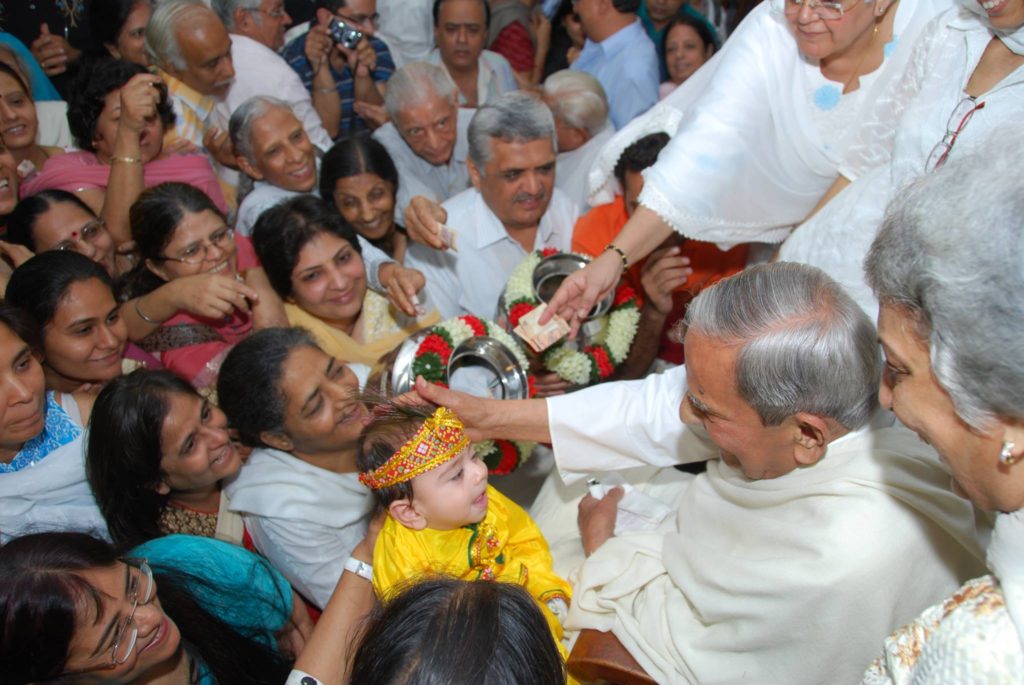
Q: What gives you the most satisfaction – and what do the hundreds of people who came to listen to you, want from you?
A: That I’m doing my little bit to spread the message of the Master. They want something from me because they think I am an agent of the master. I’m a servant, one of the many servants of the master.
Q: In today’s world there is so much stress, what is your advice to people to make the maximum use of their time on earth?
A: I think there would be no stress if we lived in harmony in accordance with the will of God. It is because we have forgotten that and are self willed that there is stress. If only we can merge our will with the will of God, if only we can understand that what God wills for us is better than what we will for ourselves, that in everything the Lord wills for us is the meaning of his mercy because God is all love, God is all wisdom. He is too loving to punish, he’s too wise to make a mistake. In our prayers we address Him as our parent but in our daily lives we do not bear witness to this great truth that we are the children of the Divine.
If only we behaved as children! A child has no fear, has no worry, no anxiety because he knows his mother is near to take care of him. If only we lived like children – there would be no stress, no tension, and no fear.
Q: Tell us about life in Sindh in the old days.
A: We were in Sind – Hindus and Muslims lived like brothers. So much so that if the father of a Hindu family had to travel, he would request his Muslim neighbors to take care of his family and they would take greater care of them than of their own family. There were Hindus, prominent Hindus, wealthy Hindus who were disciples of Muslim murshids – Sufi murshids who made no difference between Hindus and Muslims. To them both were the same.
Q: In your own teachings you also have the Sufi touch?
A: Yes, because we are from Sind and Sind was a place of Sufis. Mystics who believed that there is only one God. Yes, but that has been lost sight of, because of the impact of politics.
The mosque is as much a place of worship as a temple. We should have reverence for both. Whenever I pass a mosque, I bow down to it, whenever I pass by a church, I bow down to it – because they are the places of worship of that one God whom I seek.
Q: What’s a typical day for you in Pune?
A: My day begins with spending time in silence. That is the time I get to myself. Around half past nine I open my doors. I must have a walk everyday. My food is very simple, mostly fruit and biscuits and a cup of tea. I used to take raw salads at noon. Steamed vegetables, yogurt, one small chapatti. They give me two vegetables – but I’m happy with one. And a cup of daal. I now take Soya instead of milk because the cows are very cruelly treated in factory farming. Ever since I learnt about it nine or ten years ago, I gave up milk – I believe it’s the food of violence. The cows are confined to a small area, they can’t move, and are just milk manufacturing machines.
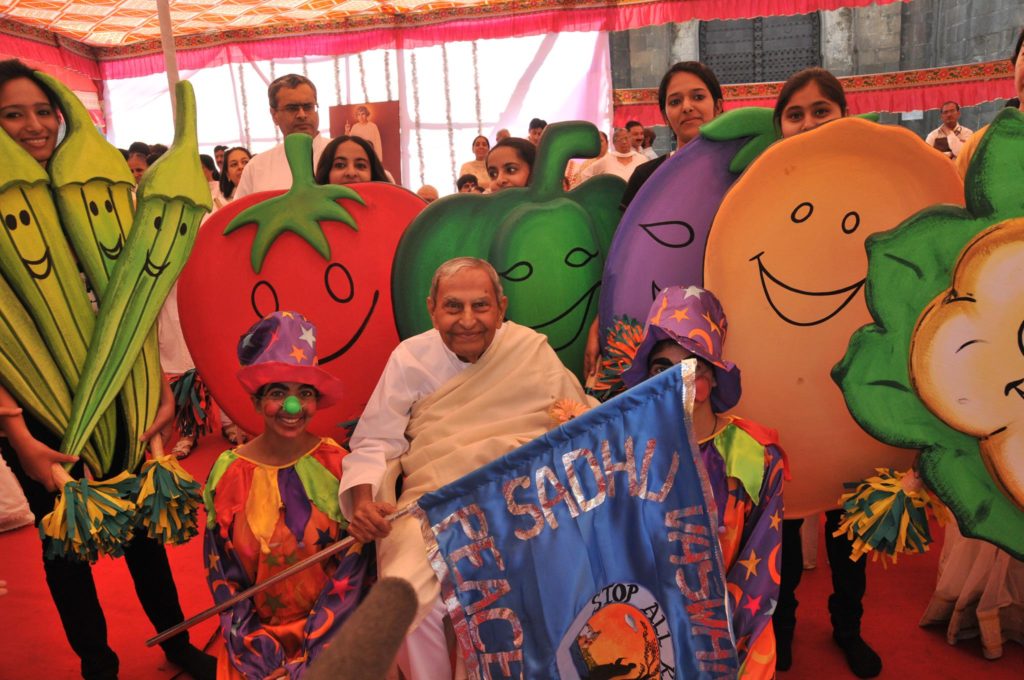
Q: Why is vegetarianism so important to be a good human being?
A: No – you don’t need to be a vegetarian to be a good human being because I have seen many who are non-vegetarians and are very good people. But I regard the vegetarian diet as a Satvic diet and it’s always better to take Satvic rather than Tamsic or Rajsic. We observe November 25 as Meatless day because of the cruelty involved. Hundreds of thousands of animals are being slaughtered every day; but they love life as much as you and I do, as much as those people do who eat them up.
I believe it is injustice because creation is one family. The breath that animals take is the same breath that we take. They are our kindred, our kin. It is the duty of man to protect his younger brothers and sisters in the one family of creation, from the cruel knife of the butcher. And I believe animals should be given their rights because today wherever I go they talk of animal welfare. Animal welfare is not the answer – animal rights are needed.
Men have their rights – do animals have no rights? Men have their rights, do they not have duties toward animals who have befriended them since the dawn of creation? The dog, the horse, and the cow – how much they have taken care of man, how much they have served man. Every animal has certain fundamental rights and the very first right of every animal is the right to live; for you cannot take that away what you cannot give. And since you cannot give life to a dead creature, you have no right to take away the life of a living one.
The 18th century gave rights to man, the 19th century gave rights to slaves, and the 20th century has given rights to women. The 21st century, I verily believe, will give rights to animals and that will be a glorious day in the history of humanity. I believe there will be no peace on earth unless we stop all killing.
Q: Children who are educated here often are asked difficult questions about Hinduism by their peers. How should they deal with that?
A: I think it is the duty of parents to educate their children and tell them of the rich heritage that belongs to them as the children of India. Both parents are busy making money with the result children are neglected. There are thinkers and philosophers the world over who say our hope is in India, India’s culture, India’s message. It is a sinking civilization in which we live – the hope of this sinking civilization is India. If only our children were told of their rich heritage I don’t think they will succumb to peer pressure. Now they have no roots, no foundation to stand on – therefore they easily succumb to peer pressure.
Q: Do you think slapping or hitting children to discipline them is ever justified?
A: No – it’s a great crime. Never hit a child but you should love him so much that if he does something that he should not have done, you simply turn away from him and that is the punishment that will set him right. If we hit children, they become more obstinate and it creates a psychological complex within them.
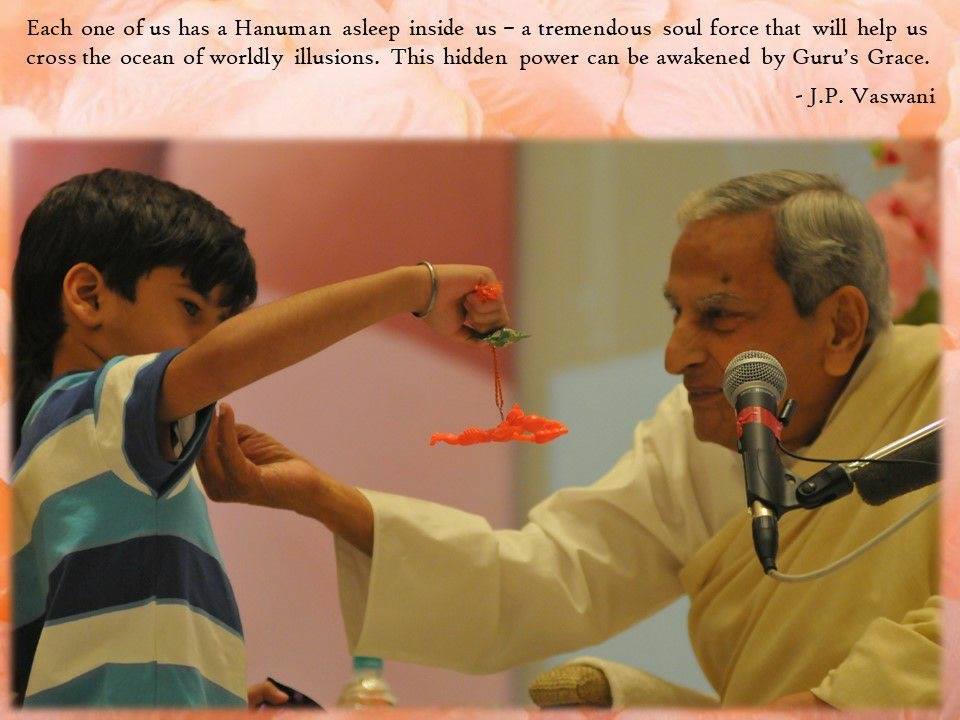
Q: What can parents do to make their children proud of their Hindu faith?
A: Every Hindu parent should train their child to be a good ambassador of India’s culture. Every child is an ambassador in the making if only he will bear witness in deeds of daily living to the teaching of the Bhagwat Gita, the Upanishads and the Ramayan. He can be a model. We are a minority here in America, we are a very, very small minority – but that is our opportunity. We can be an example to the rest of the world.
Q: Sindhis have lost their homeland – there is no Sind to go back to. Do you feel Sindhis have maintained their culture?
A: I’m afraid during the years that have gone by since Partition, Sindhi culture is on the wane – but I can find, wherever I go, a new movement for the uplift of this culture. I believe Sindhi culture has so much to contribute to the life and thought of humanity and I have no doubt that it will come up again.
Q: You’ve always preached that Ram and Rahim, Christ and Krishna are one. Do you think there’s a place for this belief in Hinduism – other Hindu preachers don’t seem to emphasize this as much as you do.
A: Ram and Rahim are one but we have to be true to Rama because we have been born in a Hindu family. We have to be true to our dharma. Each one has his own dharma. I don’t believe in converting other people from other religions to Hinduism. You teach those Christians to be better Christians; you teach those Muslims to be better Muslims because they are born in that faith – God’s will has sent them into that particular faith. Their evolution will be worked out only when they are true to their own faith.
Likewise, we must see that we as Hindus become better Hindus. I should be a better Hindu today than I was yesterday. I should be a better Hindu tomorrow than I am today.
Q: All the religions have different explanations as to what happens to the soul after we die. What light can you throw on this?
A: For an Indian it’s in his blood to believe in reincarnation and in life after death. But you say what is the scientific proof? Each country has specialized in something or the other – India specialized in spirituality. It carried out experiments in atma vidya – the science of the spirit. Regular experiments were carried out –a group of 12 scientists went around the world looking at cases of reincarnation and they have given in detail their findings, and this points to reincarnation and to life after death.
Q: So life when it finishes here doesn’t end.
A: It doesn’t end – this is only one chapter in a huge volume of life – only one small chapter. We learn many lessons – we come to this earth plane, we wear the human body to be tested whether we have actually learned those lessons or not. Because matter on this plane is gross, when we come into contact with physical matter, that is when the test begins. In the astral world, the material is very plastic – it yields to thought – I think of something and it happens. Not so here.
Q: What gives the most meaning to your day? Is it the word of God?
A: The word of God and more than that, harmony with the will of God. Rejoicing in whatever happens. It comes as a prasadam out of the spotless hands of the Lord.
Q: If someone takes it that way, then there’s no conflict in life.
A: There’s no conflict – you’re always at peace. You are at peace with yourself and you’re at peace with those around you. And you’re at peace with God’s cosmic laws. And I believe there’s no treasure richer than peace of mind.
Q: Is there any magic word or magic pill that could help everybody? What would be that one magic word?
A: Acceptance. Accept everything that happens. Sadhu Vaswani said, ‘God is the Great Cosmic Spirit and humanity is His bride. He loves each one of us. Why can’t we trust him?’
Related Articles:
